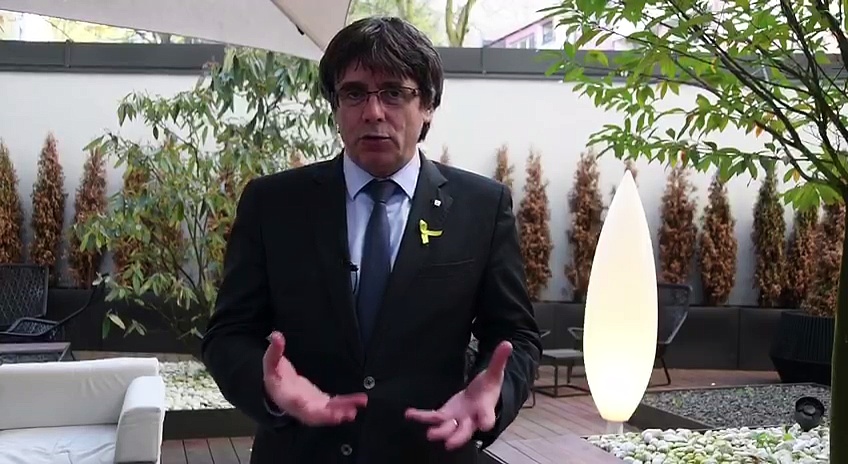10.05.2018 - 12:15
|
Actualització: 10.05.2018 - 12:19
Catalonia is holding its breath with a new candidate for president to be announced before Saturday. The Spanish Constitutional Court on Wednesday put an end to Carles Puigdemont’s hopes to be reinstated –at least for the moment. The million-dollar question now is: who will be sworn in as head of the government? If the Parliament has not appointed an MP in the post by May 22, voters will be asked to cast their ballots again in mid-July.
In order to avoid an automatic snap election, Puigdemont, as leader of the main pro-independence party, Junts per Catalunya, is expected to put forward another MP for the post this Friday or Saturday. Chances are that an investiture debate will be held on May 14, with a first round of voting in the chamber. If there are not enough votes –an absolute majority is needed for it to succeed– a second round of voting would be held on May 16 –in which a simple majority would be enough to swear a candidate in.
Possible candidates
Who will be the chosen one? Topping the list is one of his closest allies, Elsa Artadi. She would be the first female president in history. Another MP rumored to have a chance is Quim Torra, a lawyer and writer who is new to institutional politics, as is journalist Francesc de Dalmases. Other possible names include a member of the Parliament bureau, Josep Costa, the mayor of Mollerussa, Marc Solsona, and Antoni Morral, a former mayor for an alternative left-wing party. Whoever it may be, Spain will only accept someone who is not being prosecuted by the Spanish judiciary.
Rajoy, dialogue with conditions
The new Catalan president will have a lot on their plate after more than half a year with self-rule suspended. Yet among the most pressing will be talks with Spain. Its president, Mariano Rajoy, said in a TV interview on Thursday that he is ready for a “process of dialogue” with Catalonia once a new government is formed. Yet he added that that this executive must not “divide” Catalans.
Rajoy also outlined the limits of his willingness to talk. “I am ready to speak with this government with no other limit than that established by law,” he said. The People’s Party and Rajoy’s cabinet have always claimed that holding a referendum, even one agreed between the Catalan and Spanish authorities, would be illegal under Spanish law.
Rajoy also said that he is “hopeful” that a new cabinet in Catalonia is formed “as soon as possible.” According to the president, the current situation “is affecting foreign investment, and could affect the economy and people’s wellbeing.”
Not lifting of direct rule
The leader of the unionist Ciudadanos party, Albert Rivera, also spoke about Catalonia in another TV interview on Thursday morning. For him, direct rule of Catalonia from Madrid should not be lifted as soon as a new government is formed, as Mariano Rajoy pledged when he first applied these exceptional measures. Rivera said that when a government is formed, Spain should “keep an eye on what happens” in Catalonia before lifting direct rule. For Rivera, Rajoy should not “pact with nationalists.”



